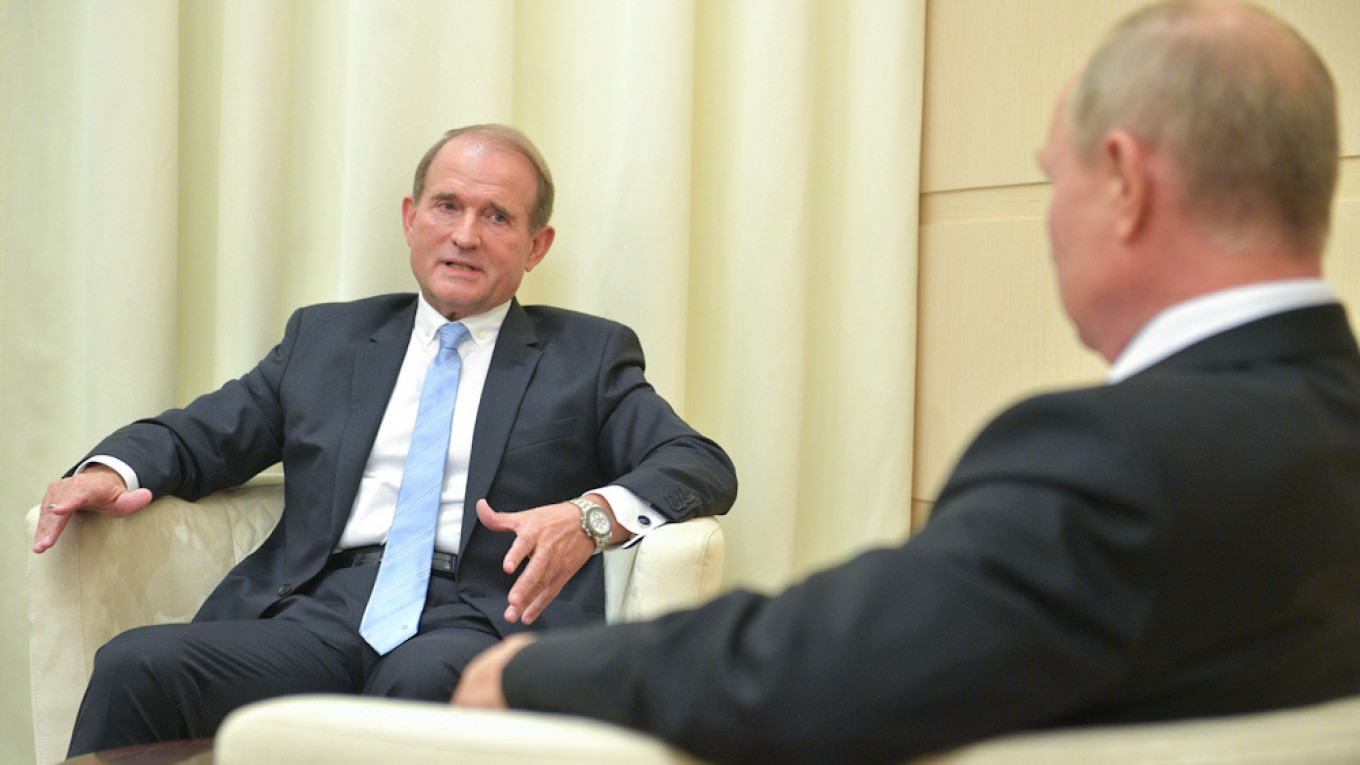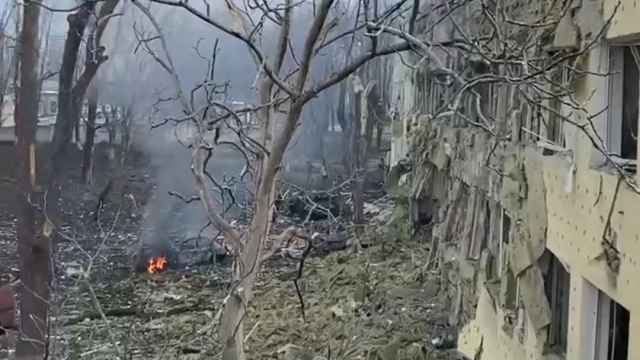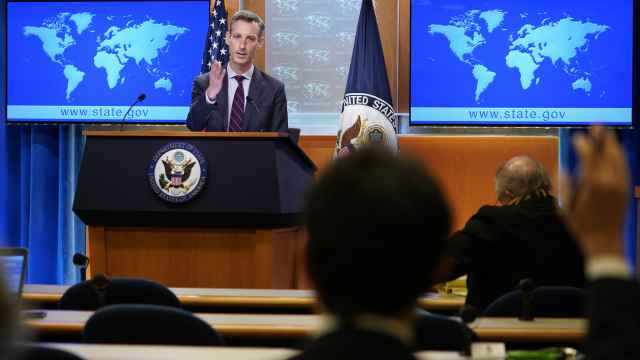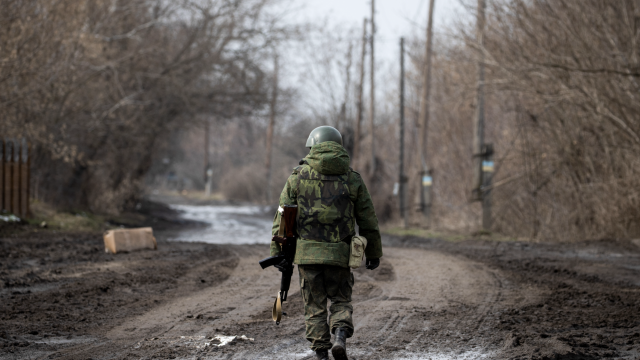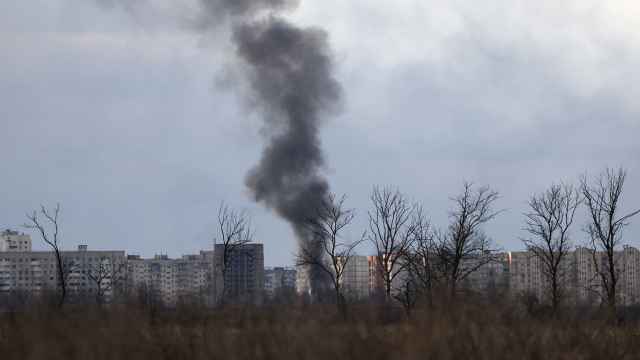Russian President Vladimir Putin vowed Friday to respond to what he said was the persecution of Moscow-friendly politicians in Ukraine, accusing the West of turning a blind eye to Kiev's political "clean-up."
With tensions between Moscow and Kiev high, Ukraine this week placed Putin's top ally Viktor Medvedchuk under house arrest on suspicion of high treason.
Medvedchuk is a pro-Russian lawmaker and one of Ukraine's richest people. He has said Putin is godfather to his youngest daughter Darya.
The 66-year-old faces up to 15 years in prison if convicted and says the accusations are politically motivated.
Speaking at a meeting of his security council on Friday, Putin said Western-backed Ukraine was being turned into "some kind of anti-Russia."
"So what, everyone who's working with Russia will now face criminal prosecution in Ukraine?" Putin said.
Ukraine, he said, was carrying out a "clean-up of the political landscape," pointing also to the closing of some pro-Russian media.
"National media outlets are being shut down — and our Western partners are not reacting at all, if not to say supporting such rulings," Putin said.
"We will have to respond to this properly and in a timely fashion," he said, without elaborating.
Putin's spokesman Dmitry Peskov said Medvedchuk was one of those who wanted ties between Russia and Ukraine to improve and cautioned against a "political witch hunt."
'Minus Medvedchuk'
Contacted by AFP, Ukrainian President Volodymyr Zelenskiy's office declined to comment on Putin's statement.
But in a column published in a local magazine, Ukraine's 43-year-old leader said he would press ahead with his policies to rid his post-Soviet country of oligarchs and a new bill on "de-oligarchization" would soon be unveiled.
"For the first time in many years the number of oligarchs in Ukraine has not increased but decreased. Minus Medvedchuk," Zelenskiy told Focus magazine.
"With the help of legal instruments Medvedchuk has been stripped of the possibility to use media assets and state property to openly attack the country and damage national security."
Ukraine has been at loggerheads with Russia since a 2014 uprising ousted a Kremlin-friendly leader, Moscow annexed Crimea and a fierce conflict broke out between Kiev's forces and pro-Russian separatists in the country's east.
After a lull last year, fighting escalated at the start of 2021 and last month Russia amassed 100,000 troops near the Ukrainian border and in Crimea, prompting warnings from NATO.
Russia later announced a pullback but both Washington and Kiev say that the withdrawal has been limited.
'High treason'
Medvedchuk is one of Ukraine's richest people, with Forbes estimating his net worth at $620 million.
Ukrainian authorities this week said that he and another pro-Moscow lawmaker, Taras Kozak, were "suspected of high treason and attempts to plunder national resources" in Crimea.
In February, Zelenskiy banned three pro-Russia television channels owned by Kozak and linked to Medvedchuk.
Zelenskiy's office described the channels as a "propaganda tool" and said they receive funding from Russia.
Ukraine's Western allies have backed it against Russia, with US Secretary of State Antony Blinken demanding Moscow end its "aggressive" actions towards Ukraine during talks with Zelenskiy in Kiev last week.
Clashes have continued along the frontline in Ukraine's east, where Kiev is battling separatists in the Donetsk and Lugansk regions.
The Ukrainian military said Friday that one of its soldiers had been killed by sniper fire.
The conflict, which has claimed more than 13,000 lives, has seen at least 37 Ukrainian soldiers killed since the start of the year, compared to 50 in all of 2020, while the separatists say some 30 of their fighters have died.
A Message from The Moscow Times:
Dear readers,
We are facing unprecedented challenges. Russia's Prosecutor General's Office has designated The Moscow Times as an "undesirable" organization, criminalizing our work and putting our staff at risk of prosecution. This follows our earlier unjust labeling as a "foreign agent."
These actions are direct attempts to silence independent journalism in Russia. The authorities claim our work "discredits the decisions of the Russian leadership." We see things differently: we strive to provide accurate, unbiased reporting on Russia.
We, the journalists of The Moscow Times, refuse to be silenced. But to continue our work, we need your help.
Your support, no matter how small, makes a world of difference. If you can, please support us monthly starting from just $2. It's quick to set up, and every contribution makes a significant impact.
By supporting The Moscow Times, you're defending open, independent journalism in the face of repression. Thank you for standing with us.
Remind me later.


